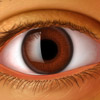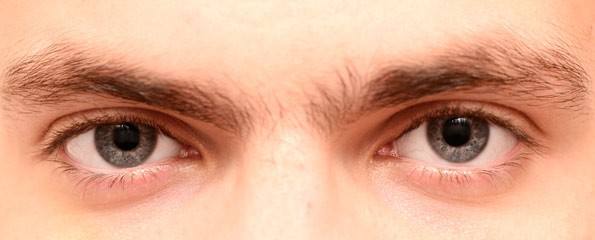Stressed and depressed: Ripple effect from vision loss
New research by the Macular Disease Foundation Australia reveals that the unexpected burden of wet age-related macular degeneration (wet AMD) weighs heavily not only on the person living with the disease, but equally on those who care for them.
Overall, depression rates amongst those who care for someone with wet AMD were more than triple those seen in the general population over 65 years of age1 and those surveyed aged under 70 report even higher rates of depression, with one in nine suffering from the condition.
Julie Heraghty, CEO of the Foundation, stated, “The golden years are not so golden for many of those diagnosed with wet AMD and those who care for them. From assisting with everyday tasks like cooking, getting dressed and doing the finances, to attending regular doctor appointments, the heavy burden of wet AMD can rest squarely on the shoulders of the carer.
“So many carers feel the constant worry about accidents and falls, the continuous need to stay positive, and the relentless amounts of patience, tolerance and understanding they need every day, as well as the sadness at seeing their partner lose their enjoyment in life – it is a side of caring that many just don’t see,” Julie Heraghty said.
Carers indicate that while looking after someone with wet AMD they have felt frustrated (38%), sad (28%) or down (25%), and for over half it has a negative impact on their life – similar levels to that reported by people with wet AMD.
The research also found that the majority of carers (55%) felt that their role as carer has impacted upon other people. Most commonly these are family members (48%), including their children (30%), partner (28%) or grandchildren (12%).
“The ripple effect of vision loss beyond the individual is extensive. The majority of the time, spouses are bearing the brunt, with the flow on effects impacting the carer’s family, the community and the healthcare system.
“With the research revealing so many carers have had to throw their retirement plans out the window, put their lives on hold and their health on the backburner, it is essential that we turn our attention to the health and wellbeing of those caring for someone with vision loss,” Julie Heraghty said.
In addition to navigating the daily challenges of vision loss, almost nine out of ten (86%) carers reported those that they looked after suffered from other major chronic disease. Among patients with other health conditions, 53% were diagnosed with arthritis and 33% with heart disease.
Two thirds of carers are also contending with serious chronic disease of their own and 40% find being a carer impacts their ability to manage their own health. Among carers contending with other diseases over half suffer from arthritis (54%), one in four (25%) have heart disease and almost one in ten (8%) have cancer. Adding to the situation, around one in 10 carers had no one to look after them when they were unwell.
Associate Professor Alex Hunyor, Retinal Specialist at Sydney Eye Hospital and Macquarie University, said the research reinforces the significant burden of wet AMD and highlights the importance of early detection and treatment.
“There are many factors we need to take into account when treating patients with wet AMD. Their individual circumstances, including their partner, carer and family need to be included in decisions about the management of the disease to help reduce the overall impact of AMD.
“We know the impact of vision loss and blindness, and we understand the strain on both the person living with the disease and the person who cares for them. Anything we can do to save a person’s sight is vital; if we can detect the disease early then we have a window of opportunity to avoid or delay the heavy burden of vision loss,” Associate Professor Hunyor said.
The Macular Disease Foundation Australia calls on all those who have macular degeneration or any other macular disease, or are caring for someone with vision loss from macular disease to:
- Contact the Macular Disease Foundation Australia helpline 1800 111 709 to receive a free information kit for carers and those with macular degeneration
- Contact your General Practitioner or beyondblue support service 1300 224 636 for advice and help on depression and anxiety
- Contact Carers Advisory Service 1800 242 636 to ensure you are not missing out on vital services and entitlements
Key findings
- Seven per cent of those who care for someone with wet AMD report suffering from depression – more than triple the incidence seen in the general population over 65 years of age.1
- Almost nine in ten (86%) carers look after someone who has other chronic diseases. Of patients with other diseases, the most prominent are arthritis (53%) and heart disease (33%).
- Two-thirds (67%) of carers report contending with their own chronic conditions; within the group 54% are living with arthritis, 25% heart disease, 11% diabetes and 8% cancer.
- One in ten carers (9%) had no one to look after them when they were unwell.
- Carers report that since having become the carer of someone with wet AMD they have felt frustrated (38%), sad (28%) or down (25%). One in ten report having felt isolated.
- Both existing retirement situations and future retirement plans have been affected for 34% of carers.
- As many as 54% of carers have had to change activities and plans as a result of having to care for someone with wet AMD. Overseas (31%) and domestic (30%) travel plans are the most likely to have been cancelled or changed.
- The most common aspects of a carer’s life affected by their caring for someone with wet AMD are everyday activities (28%), state of mind (27%) and their social lives (25%).
- Carers often assist the person with wet AMD by doing the grocery shopping (62%), managing the person’s finances (50%), cleaning (48%), food preparation (46%), helping them leave the house (43%), read (39%) or use public transport (28%).
- Seventy five per cent of those diagnosed with wet AMD never considered vision loss as a future health concern, and now living with the disease report feeling frustrated (49%), down (28%), isolated (18%) and sad (16%). However 18% report they are more determined now.
Issued on behalf of the Macular Disease Foundation Australia and supported by Bayer Australia.
References
- ABS 2007 National Survey of Mental Health and Wellbeing: Summary of Results
- Deloitte Access Economics and the Macular Degeneration Foundation. Eyes on the future: A clear outlook on Agerelated Macular Degeneration, 2011
- Macular Disease Foundation Australia. http://www.mdfoundation.com.au/resources/1/factsheets/AMD_Booklet.pdf. Last accessed 20.03.13.
- Increasing the understanding of Wet Age-related Macular Degeneration (AMD) as a Chronic Disease. Report by AMD Alliance International
More information
 | For more information on age-related macular degeneration, including the effect of smoking, exercise and nutrition on eyes, as well as some useful animations and tips to keep eyes healthy, see Macular Degeneration. |
Dates
Tags
Created by:

 Login
Login














